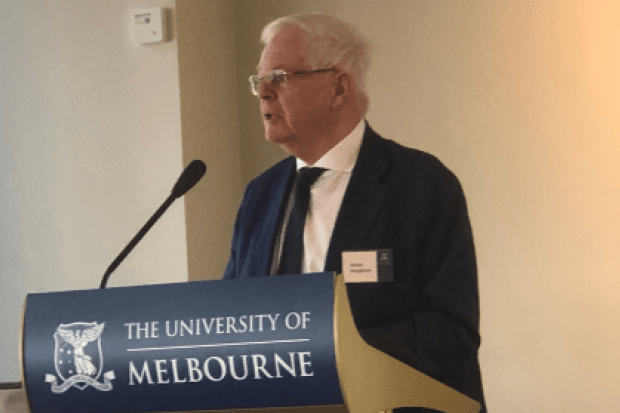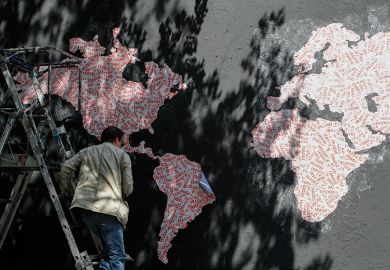Anglophone universities’ embrace of internationalisation helped to foster the “multipolarity” that is now driving a retreat from internationalisation, according to Simon Marginson, professor of higher education at the University of Oxford.
Professor Marginson said three “profound sources of anxiety” had induced Western governments – and consequently universities – to circle the wagons.
One was the “growing realisation” that climate change would not be effectively addressed. Another was the decline in people’s living standards and economic prospects. A third was the “decisive weakening” of that “so comforting feeling of global superiority”.
“The fear that we’re being replaced is grounded in awareness – accurate awareness – that white folk are not always at the top in the world today,” Professor Marginson told a forum hosted by the University of Melbourne’s Centre for the Study of Higher Education.
Observers have been stunned at the Australian, Canadian and UK governments’ rapid reversal of supportive international education policies, amid perceptions that overseas students and their dependants are monopolising employment and housing.
Professor Marginson said the “underlying conditions” for this shift had emerged since 2010, as the anglophone world retreated from economic and liberal openness. “A fault line between national policies and globally engaged universities was opening up,” he said. “It was just a matter of time before global links in higher education would be problematised by policy.”
During the “accelerated globalisation” of the 1990s and early 2000s, Western governments and pan-national organisations such as the World Bank had “committed to a liberal capitalist reform agenda that valorised openness and freedom in all domains”, Professor Marginson said. Cross-border student mobility more than tripled, and global science grew by 5 per cent a year, as “anglophone-influenced education and science became globally distributed”.
But the “enormous expansion in capacity in the non-Western world, notably but not only in China”, made the West increasingly nervous. Between 2003 and 2022, the growth in science output from low-income countries with immature research systems ran at three times the rate of that of the rich, established nations.
Professor Marginson said the new barriers to mobility since 2020 were most evident in the US’ scientific decoupling from China and a pushback against foreign students that was not restricted to anglophone countries. “France and Finland now have high fees for international students. Dutch and Danish politicians have moved to cap incoming students and English language courses,” he said.
“What we have here is an incompatibility between the multipolar development of global political economy and higher education and science, and the US geopolitical project.”
He said higher education’s responsibility was not to “conform to the US geopolitical project”, but to assert its autonomy in relations with “the emerging middle countries [who] can now see with clarity the possibility of…a post-colonial world. Will we support them in that? I believe we should.”
Register to continue
Why register?
- Registration is free and only takes a moment
- Once registered, you can read 3 articles a month
- Sign up for our newsletter
Subscribe
Or subscribe for unlimited access to:
- Unlimited access to news, views, insights & reviews
- Digital editions
- Digital access to THE’s university and college rankings analysis
Already registered or a current subscriber? Login








